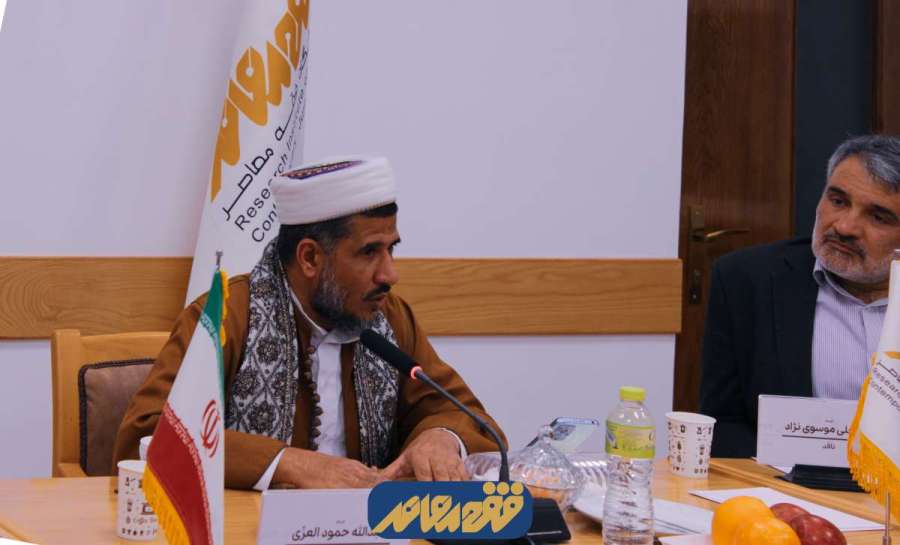
Prof. Abdullah Hammud Al-lzzi clarified the jurisprudential foundations of this denomination in a meeting entitled “Zaydiyyah” denomination’s capabilities in facing emerging issues and contemporary jurisprudence, which was held on December 3 at the Research Institute of Contemporary Jurisprudence.
In the first part of his speech, Prof. Abdullah Hammud Al-lzzi explained the most important features of the Zaydiyyah denomination and said: Zaydiyyah is a denomination and a school of thought, not a jurisprudence. This denomination was formed based on the uprising against oppression and the revolutionary movement against the rulers, including the Umayyad rule, and it does not claim a new school and system from the jurisprudential aspect.
The porof. said: We believe that we have two types of Islam. The real Islam, which is based on the prophetic tradition and Alevi thought, and the deviant religion that started from the time of Mu’awiyah and its extension was seen in the Umayyads. The Zaydi denomination has different branches of thought such as Qasimi, Naseri and Hadavi and is widespread in various geographies including the region of Tabaristan, Iran, Turkey, Iraq, the Hejaz and Yemen.
Prof. Abdullah Hammud Al-lzzi added: Zaydi fiqh is not an abstract and theoretical jurisprudence. Rather, according to the idea of the necessity of forming a government and also the experience of Zaydi governance, Zaydi jurisprudence has tried to respond to the issues and needs of the day, including individual, social, governmental, cultural, economic, and other fields. Government jurisprudence has a very important place among the jurists of this denomination.
He said: “In Zaydi jurisprudence, we see many diverse issues, including urban planning issues, citizens’ rights, and even some minor issues such as the laws of hawking and the ringing of church bells, etc. According to this feature, it can be said that Zaydi jurisprudence considers itself obliged to respond to current and emerging issues.
This master of Zaydi denomination explained the pillars of Zaydi jurisprudence and said: In Zaydi jurisprudence, the chapter of ijtihad is open, and this has caused the dynamism of this jurisprudence, and the place of reason in ijtihad is also important. On the other hand, the Zaydi denomination is based on the Qur’anic principles and the hadith is incomplete in the Qur’an. The analogy has a state of balance and extremes in the analogy have been avoided.
In the continuation to explain the pillars of Zaydi jurisprudence, he said: Ijma’ precedes comparison and is very important. Even now, the consensus of scholars on a theory called the consensus of Sadat has an important validity in our eyes.
Later on, Prof. Sayyid Ali Musavi Nejad, an expert on the Zaidi denomination, reviewed the presented materials. According to him, Zaydiyyah denomination has many strengths, such as being based on reason, being Qur’anic, and emphasizing consensus and balance in comparison.
The prof. stated: While there are important points in Zaydiyyah fiqh, we see some contradictions in rulings such as washing and ablution. Also, the intellectual space of Zaydiyyeh is still based on its heritage and no intellectual and analytical space and so-called positive new thinking can be viewed in it.
Prof. Musavi emphasized: It is very important and useful to get information about an intellectual or religious trend from the scholars of that denomination and trend, but we should note that this information may have some exaggerations or changes based on the audience’s taste.
Following the matters, the members present in the meeting raised questions and Mr. Abdullah Hammud Al-lzzi and Mr. Sayyid Ali Musavi Nejad answered them.
